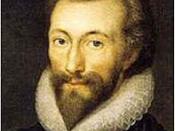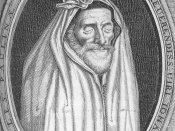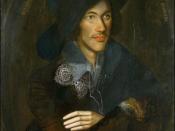Readers since the middle seventeenth century have found the sermons and poetry of John Donne to be rather controversial. Being an Anglican priest, readers may expect his work to evince the progress toward one's sense of a caring God, faith, and spiritual health. However, these expectations fall short very quickly. The works of John Donne rarely, if at all, seem to give some impetus towards spiritual progression and a closeness with God. Most of his poetry
and sermons oddly enough deal with the idea of death and complete separation from God (known as the via negativa). It is hard to discern what kind of message Donne is sending as a man of faith, but if one looks hard enough, the real messages he is trying to send are on much deeper levels than previously thought.
John Donne was born into a Roman Catholic family in 1572, a time when the persecution of the Catholics in England was on the rise.
English laws prohibited anyone from publicly practicing any other religion other than the state religion. John Carey described the consequences of not adhering to Anglicanism: "You could not, if you remained faithful to your religion, hope to play any part in public life, and you were debarred from taking a university degree by the requirement that graduates should subscribe to the Thirty-nine Articles" (qtd. in Bloom 10).
Donne, as a young child, was forced to watch public executions due to his Catholic connections. His grandfather, John Heywood, fled rather than accepting Anglican Doctrine. Donne even had to endure the sight of his neighbors being arrested and executed. Fearful of his life, Donne left his Catholic heritage behind in the 1950s.
He attended at both Cambridge and Oxford and studied religion, medicine, and law, but never took a degree in any...


